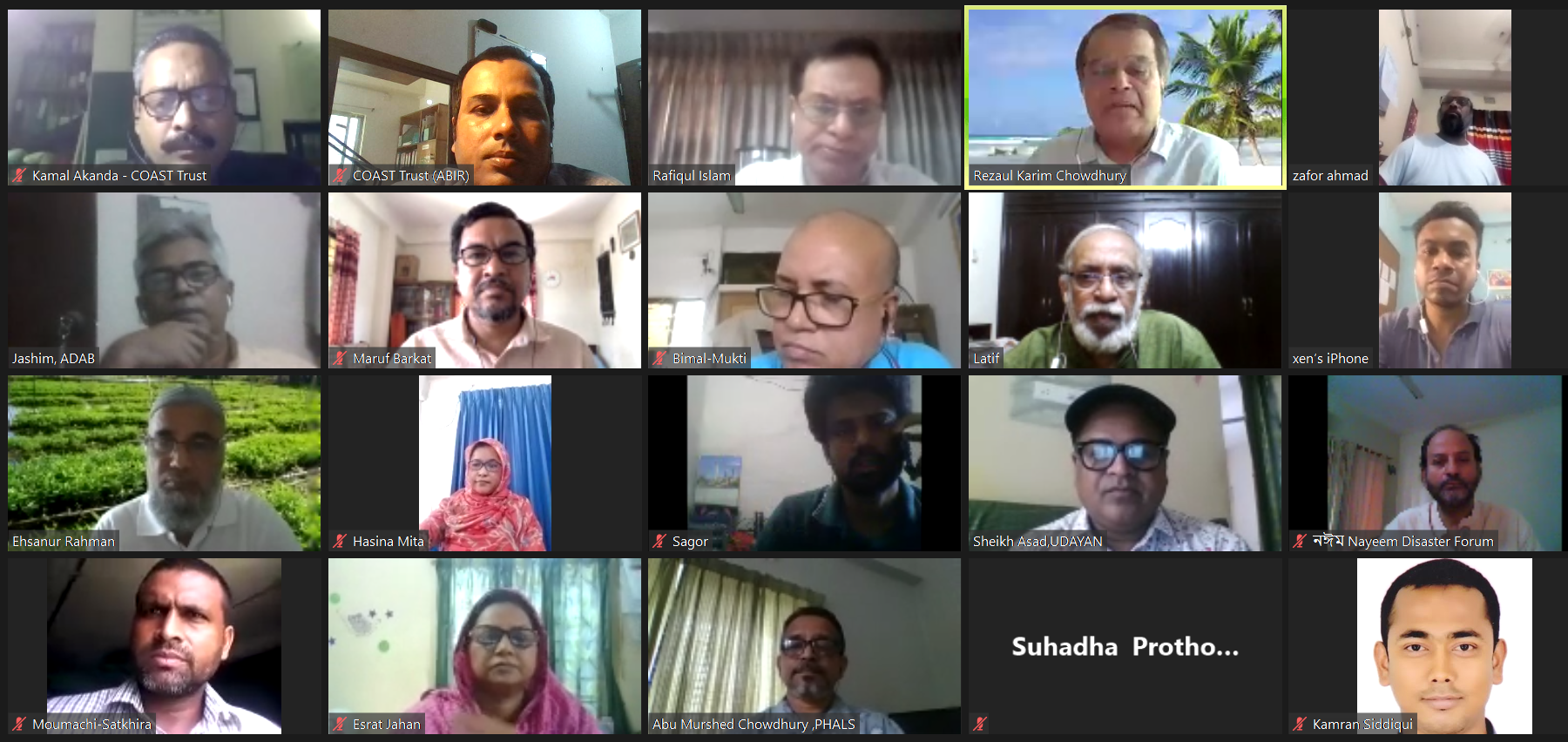02/16/2026

BD NGOs urge Intl agencies to support localization and Govt for inclusive coordination with long term plan in Corona response
SAMI | Published: 2020-06-08 03:35:56

National and local non-governmental organisations (NGOs)have provided around Tk155.87 crore in support for Covid-19 response from March 5 to May 25 this year, according to a survey.
The support was provided to 49 districts by 212 national and local NGOs. Of the amount, Tk140.22 crore came from donors and Tk15.67 crore from own funds of the NGOs.
Among the NGOs, 56.1 percent were non-microfinance institutions, and 43.9 percent microfinance institutions.Their support has reached 14.8 million beneficiaries.
The survey was conducted by seven platforms of national and local NGOs –BD-CSO Process, Association of Development Agencies in Bangladesh, Federation of NGOs in Bangladesh, Disaster Forum, National Alliance of Humanitarian ActorsBangladesh, Network for Information, Response and Preparedness Activities on Disaster, and Cox's Bazar CSO NGO Forum.
The objective of the survey was to collect information on the role of the Bangladeshi NGOs in fighting the Covid-19 crisis. The findings were published in a virtual press conference on Sunday.
The major areas supported by the NGOs were awareness programmes(37.1 percent), food (32.2 percent), health (19.2 percent) and cash assistance (11.5 percent).
Soap and hand wash support was at the top, followed by emergency food items and masks, leaflet, and personal protective equipment.
The highest response was recorded in Rangpur division (61.3 percent), followed by Chattogram (13.7 percent) and Dhaka (12.7 percent), and the rest in other divisions.
The NGOs suggested the government could involve national and local NGOs – who are working as frontline service providers – in local coordination and enable them to act as service providers on behalf of the government.
They said the donor community and the United Nations agencies should provide direct funding for national and local NGOs to enable the latter to continue the support, while the role of international NGOs and the United Nations agencies should only be limited to monitoring and technical assistance.
Rezaul Karim Chowdhury, executive director of Coast Trust, moderated the press conference and Abdul Latif Khan, technical advisor to the National Alliance of Humanitarian ActorsBangladesh, presented the survey report.
Other speakers at the conference were Dr Ehsanur Rahman of the National Alliance of Humanitarian Actors Bangladesh, Nayeem Gowhar Warha of Disaster Forum, Abu Morshed Chowdhury of Cox's Bazar CSO NGO Forum, Hasina Akhter Mita of Network for Information, Response and Preparedness Activities on Disaster, Jashim Uddin of Association of Development Agencies in Bangladesh, and Rafiqul Islam of Federation of NGOs in Bangladesh.
Mr Abdul Latif Khan in his presentation said that NGOs has spent taka 1.56 billion, where 10% (0.15 billion) is from their own resource, mainly by the local NGOs as the fast responder. Among them 56% are non-micro finance NGOs and the rest are right based NGOs.
Rezaul Karim Chowdhury of BDCSOprocess said, this is the process to highlight local and national NGOs as the fast responders even without donor support initially.
Dr Ehsanur of NAHAB said, since the NGO response at local level is a continuous process, we shall keep updating on their efforts.
Nayeem Gowhar Wahra of Disaster Forum urged for strong coordination between local government and NGOs especially at the district level with a long term planning, which requires coordination space for NGOs.
Abu Morshed Chowdhury of CCNF said, Donors should give direct funding to local and national NGOs for implementation while the key role of INGOs (international NGOs) and UN agencies should be monitoring and technical assistance. They should fulfil their commitments on localization, he added.
Hasina Akhter Mita of NIRAPAD said that NGOs are the best to reach remote areas and marginalized population.
Bimol Dey Sarker of CCNF elaborated how local NGOs in Cox’s Bazar supported relief, health and awareness activities from their own fund both in refugee camps and host community, especially funding to Deputy Commissioner’s initiatives.
Jashim Uddin of ADAB said, the government must understand the benefit of the involvement of NGOs and local government as the impact of corona is long term and multifaceted. The new budget should reflect the plan of mass people’s health in future, he added.
Rafiqul Islam of FNB said that, government should not go alone, health sector should get highest priority in our planning.
Editor & Publisher : Md. Motiur Rahman
Pritam-Zaman Tower, Level 03, Suite No: 401/A, 37/2 Bir Protik Gazi Dastagir Road, Purana Palton, Dhaka-1000
Cell : (+88) 01706 666 716, (+88) 01711 145 898, Phone: +88 02-41051180-81